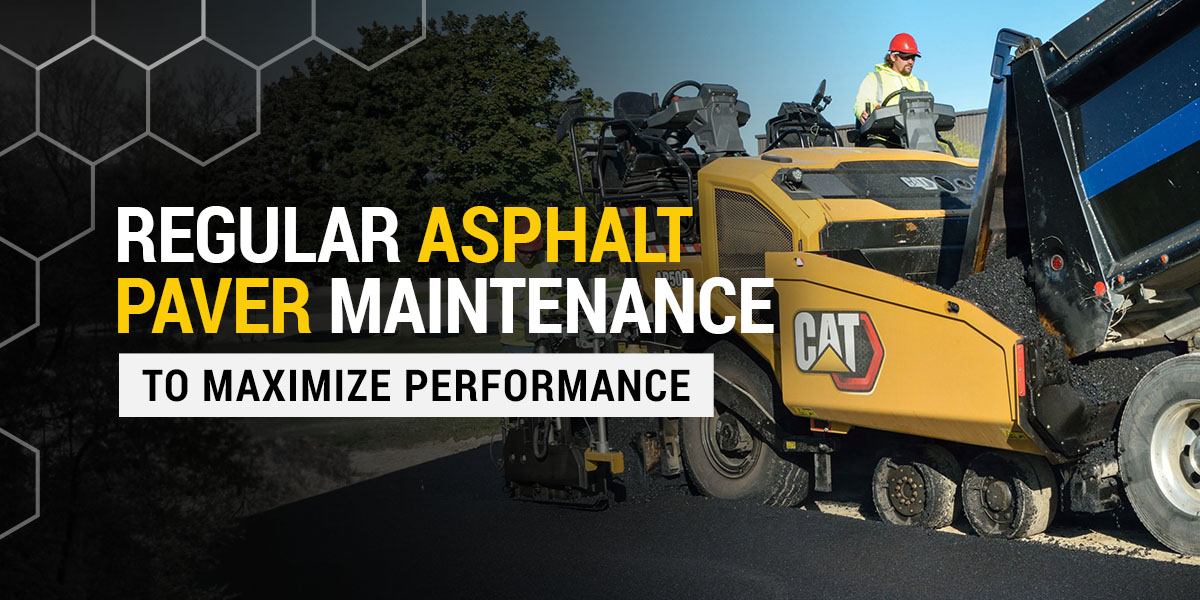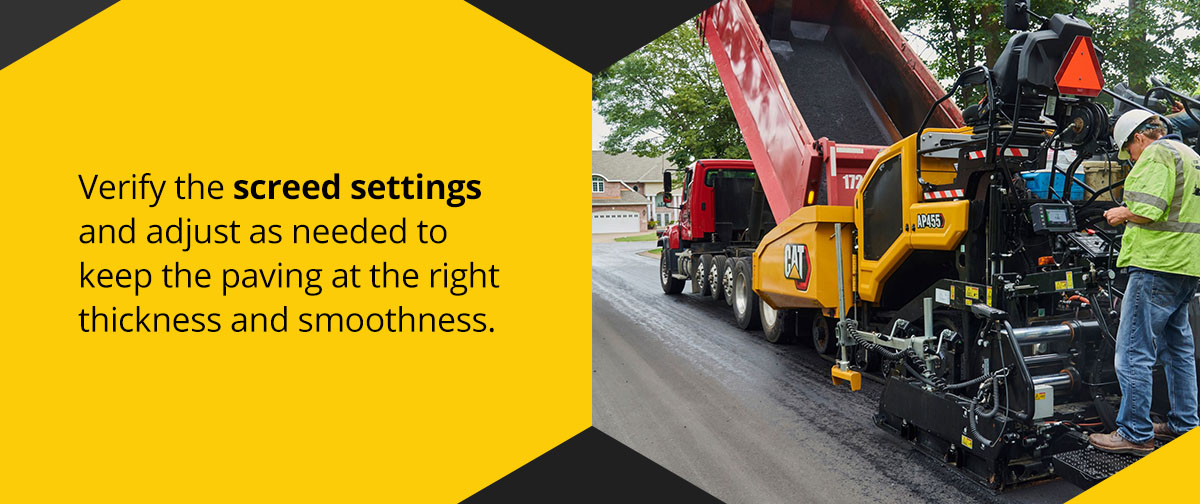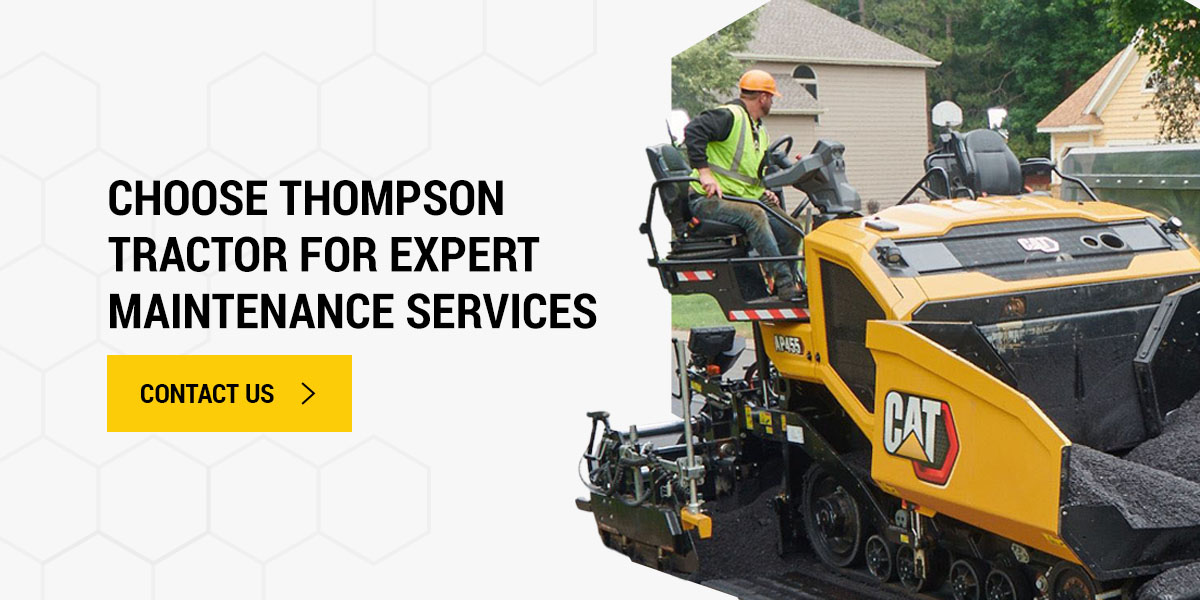Pavers are essential to road construction and repair work, and their performance helps determine a project’s success. Keeping up with maintenance can help avoid costly breakdowns and keep operations running smoothly. A few tips can help you care for your paver and save you valuable time and money.
Importance of Asphalt Paver Maintenance
Keeping your paver well-maintained is critical. Maintenance helps extend the equipment’s life span, enhance its performance, and reduce unexpected breakdowns.
- Increase life span: Investing in maintenance goes a long way, increasing your equipment’s life span so you can get more use out of it and avoid costly repairs or replacements.
- Enhance safety: Maintenance services include checking and repairing mechanical and electrical components that affect the paver’s performance. A well-maintained paver is less likely to malfunction, reducing the risk of accidents on the job site.
- Enhance performance: Maintenance services include inspections to ensure all parts of your equipment are working properly. For example, you’ll need to maintain correct hydraulic oil levels and service intervals to increase the life of these systems and keep your equipment performing efficiently. Your paver’s performance directly impacts your job’s success, making it important to invest in routine maintenance.
- Reduce breakdowns: Downtime significantly impacts the life span of the roadway — and your bottom line. Daily checks and routine maintenance service can spot potential equipment issues early on, preventing them from becoming major ones that delay projects.
Neglecting maintenance can lead to increased repair costs, decreased productivity, and risk of safety hazards. A paver that isn’t working optimally can run slower, increasing the length of projects and preventing you from taking on more jobs. It can also lead to costly repairs.
What’s Involved in Routine Maintenance?
Routine asphalt paver maintenance typically involves the following tasks to keep the equipment running optimally for a longer time:
Daily Preventative Maintenance
Paver care includes following a daily preventative maintenance checklist. Your operators are key to ensuring the paver is in prime operating condition, including how well the machine performs daily. This way, they can quickly understand when something isn’t right.
- Daily inspections: Operators should visually inspect the equipment each day before use. This includes checking for leaks, loose or damaged parts, fluid levels, tire pressure, and signs of wear.
- Daily maintenance tasks: Operators can follow easy maintenance tasks each day to keep the equipment running smoothly. This includes cleaning the paver and monitoring and maintaining proper levels of engine oil, hydraulic fluid, coolant, and other fluids critical for its performance. Low fluid levels can lead to overheating or system malfunctions, making it important to replace fluids as needed.
- Cleaning: Cleaning is another important part of daily paver care. It can prevent the buildup of debris, asphalt residue, and other contaminants that can affect performance. Operators should clean the tracks, screed, filters, and engine compartment.
- Track tension adjustment: Operators can maintain proper track tension to keep the paver stable and easy to control during operation. Tracks that are too loose or too tight can affect performance and safety on job sites.
Weekly and Monthly Preventative Maintenance
In addition to a daily inspection, be sure to follow specific weekly and monthly preventative maintenance:
- Thorough cleaning: Perform a deep cleaning of the paver, including hard-to-reach areas like the undercarriage, to remove accumulated debris and prevent corrosion in these components.
- Operator training: Offer operators monthly training to refresh them on best practices, safety procedures, and equipment operation to ensure the safe, efficient use of the asphalt paver.
- Screed adjustment: Verify the screed settings and adjust as needed to keep the paving at the right thickness and smoothness.
Incorporating these weekly and monthly preventative maintenance tasks can help you address potential issues early, optimize the equipment’s reliability, and promote a safe working environment on paving projects.
Equipment Inspection
Equipment inspections should include a visual check for wear and tear, as well as:
- Functional inspection: You’ll want to regularly test the paver’s engine performance, proactively addressing issues.
- Brake inspection: Check the brake pads, calipers, and hydraulic systems of your paver for wear or damage. Adjust or replace these components as necessary to ensure the brakes perform safely.
- Engine performance check: Monitor engine performance metrics like fuel consumption, power output, and emissions to detect deviations from standard operation.
- Lubrication: Properly lubricate moving parts, including chains, bearings, and hydraulic components, following the manufacturer’s recommendations to prevent premature wear and ensure smooth operation.
- Electrical system inspection: It is important to check the electrical system for loose connections, damaged wires, or faulty components. This will prevent any electrical problems that might lead to malfunctions or safety hazards.
- Cooling system check: Check the hoses, radiator, and coolant levels to make sure the paver is cooling properly during operation.
Paver Calibration
In addition to tests and inspections, paver maintenance includes accurate calibration. An accurate calibration ensures uniform paving and reduces material waste. To calibrate the equipment, you’ll need to follow the manufacturer guidelines of your equipment.
In general, calibration involves leveling the screed, adjusting the auger height, and setting the travel speed to match the desired rate of asphalt application for uniform coverage. Calibration procedures can vary depending on your paver’s specific type and model, so be sure to consult with experienced technicians if it requires a complex calibration process.
Component Replacement
Maintenance includes timely replacement of any worn or damaged parts of your asphalt paver. Components like screed plates, conveyor chains, augers, and trackpads are subject to wear during operations. Air, fuel, and hydraulic filters must also be replaced to keep the paver working efficiently and prevent contamination that could cause equipment failure.
Regularly inspecting or quickly replacing any worn parts can keep the paver working efficiently and safely, helping you avoid costly downtime.
Documentation
Be sure to keep detailed records of all maintenance activities you perform on your paver. Note inspections, repairs, and problem areas so you can track maintenance history and ensure compliance with warranty requirements. Keep your documentation in an easily accessible location for your team.
Choose Thompson Tractor for Expert Maintenance Services
Regular asphalt paver maintenance is critical for the performance and success of your projects. Following a structured maintenance schedule can help you avoid downtime, costly repairs or replacements, and promote safety on your worksites.
Thompson Tractor is a full-service provider offering expert maintenance services, parts, and replacement equipment for your project needs. We offer advanced technologies, fluid analysis, and power solutions — all in one place.
Appreciate reliable equipment and management services from an experienced, trustworthy team. Contact us to get started on maintenance services, or browse our equipment today.




